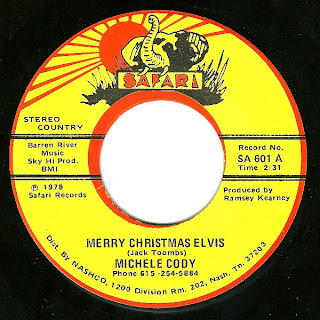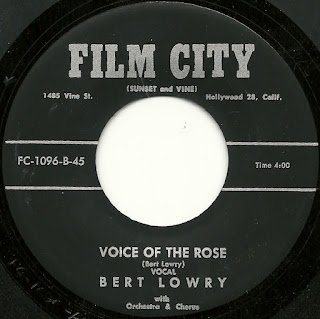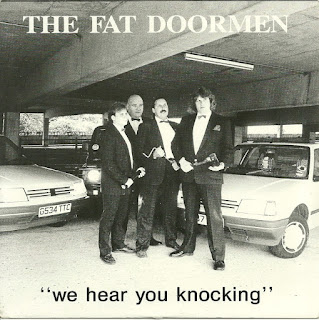Happy almost Christmas everybody! Three slices of seasonal song-poems for you today.
First up today is a re-post from 2009, as the original link is now dead and I want so much for you all to hear this - Merry Christmas Elvis, by Michelle Cody. Originally issued in 1978 on the Safari label, which was owned by song-poem hustler Ramsey Kearney (aka Will Gentry, co-writer of Blind Man’s Penis), I implore you not to not to choke on your mince pies at the song's saccharine denouement. Backed by All I Want For Christmas is My Daddy, little Michelle had made an earlier stab at recording Jack Toombs’ song, probably in 1977 the year of Elvis’s passing, on the obscure Jimbo label.
Next is a cousin, of sorts, to last week’s post – Billy’s Christmas Wish– and one of my favourite bad Christmas records of all time, NewSong’s The Christmas Shoes. It’s the wonderful Dick Kent (Elmer Plinger/Dick Castle/Richard House) with the MSR song-poem A Christmas Rose, written by the mother and daughter (I assume) team of Dollie A. Walta and Judy J. Walta and released in the same year as Merry Christmas Elvis. It’s a sin that neither of these great bad records troubled the charts.
Robert Ravis’s performance of Let’s Go, Santa is Here, comes from the album New Favorites of Robert Ravis, issued by one of the cheapest of all the song-poem outfits Star-Crest Recordings of Hollywood. Written by a Mr (or Mrs) Troxell, Star-Crest’s conceit was to present albums jam-packed (this particular one features a staggering 27 tracks split over two sides of vinyl) with one-take recordings of ‘demos’ from amateur songwriters and issue them as though they would be serious contenders for being re-recorded (or perhaps simply published) commercially. It was a con, of course, but this little-known company issued dozens of albums like this in the late 1950s-early 1960s.
For further Christmas awfulness can I direct you to my friend Bob Purse, author of the essential blog The Wonderful and the Obscure? He has recently posted a collection of Christmas-themed song-poems at WFMU– some old favourites, some completely new to me but all well worth a listen.
See you next week with more awfulness. Enjoy!



















